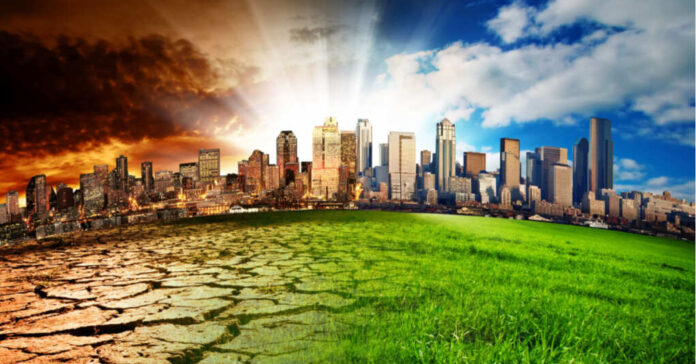
Get ready, climate change alarmists; we have a runner.
Bill Gates, well-known for his strong commitment to addressing climate change, has always said that urgent action is needed to reduce greenhouse gas emissions and mitigate the impact of climate change. The multi-billionaire supports initiatives like the New Green Deal and has invested a lot of his own money through the Bill and Melinda Gates Foundation to support climate research and solutions.
Gates thinks his financial contributions to climate causes make him an “expert” in the field. In 2021, he wrote a book called “How To Avoid A Climate Disaster: The Solutions We Have And The Breakthroughs We Need,” which became a New York Times Best Seller.
Gates, who has acquired a significant amount of farmland in the United States, is a supporter of alternative farming practices. He contends that options like synthetic or plant-based meat, no matter how disgusting, have the potential to lessen the adverse environmental effects linked to conventional agriculture.
He once predicted that climate change could cause more suffering and death than the COVID-19 pandemic.
But now, Gates is sounding the alarm about sounding the alarm on a climate change “emergency.”
Addressing the Earthshot Prize Innovation Summit, a gathering that drew notable figures like billionaire Michael Bloomberg and British Prince William, Gates raised more than a few eyebrows by admitting, “There’s a lot of climate exaggeration.” He went on to say, “The climate is not the end of the planet. So, the planet is going to be fine.”
In a subsequent event hosted by The New York Times a few days later, Gates maintained his measured stance on climate change and admitted to having doubts about the idea that climate change would render temperate countries “uninhabitable.”
Even worse news for climate change enthusiasts seeking to destroy life as we know it, Gates emphasized that addressing climate change cannot rely solely on “brute force” methods. He cautioned that pushing climate policies through such an approach leads to public resistance and concerns about lower standards of living.
He highlighted the “enormous” surge in innovation worldwide since 2015, continuing until last year, aimed at addressing and mitigating climate change. While he acknowledges that the world will not be able to meet its agreed-upon goal to limit future warming to 1.5 degrees Celsius (2.7 degrees Fahrenheit) above pre-industrial temperatures, he emphasizes that Earth won’t hit the 3-degree Celsius mark, either.
But that’s not stopping U.S. Treasury Secretary Janet Yellen, who renewed her call for powerful companies to only fund net-zero investments and not to fund industries and firms that emit heat-trapping gases.
She also introduced a set of guidelines called the “Principles for Net-Zero Financing and Investment” for financial institutions. These guidelines encourage banks and other financial entities to fund clients who are actively reducing emissions in highly polluting industries and to invest in clean energy projects.
But many former climate change alarmists aren’t buying what Yellen is selling. Dr. Judith Curry, a well-known climate scientist, has undergone a significant change in her perspective. She no longer believes in the existence of a worldwide “climate emergency.” During an interview, she discussed her new position on the “climate emergency,” pointing to an expanded understanding of climate change and a growing concern that the issue is being exploited for political purposes by radical groups and anti-capitalists.
About 1,600 scientists, including a Nobel Laureate in Physics, have signed a pledge rejecting the idea of a “climate emergency.” They argue that climate changes have occurred naturally throughout Earth’s history, not just because of human actions. These scientists think that the mainstream view might not be entirely accurate and could harm the global economy and people’s well-being.
These scientists feel that activists have pushed a “popular story” that might not be firmly grounded in scientific evidence. As a result, they argue that there isn’t a real climate crisis, even though they do acknowledge genuine challenges when it comes to energy and the growing global population.
In addition, prominent scientists from MIT and Princeton University have raised concerns about the potential adverse effects of Environmental Protection Agency (EPA) regulations aimed at reducing carbon dioxide emissions from power plants. They assert that these regulations lack a solid scientific foundation, relying instead on peer review, consensus, and a refusal to include or consider any sort of contradictory evidence.
When it comes to Gates, it’s safe to say he won’t be making it onto as many progressives’ Christmas card lists this year. In fact, he just may welcome getting coal in his stocking this year.







